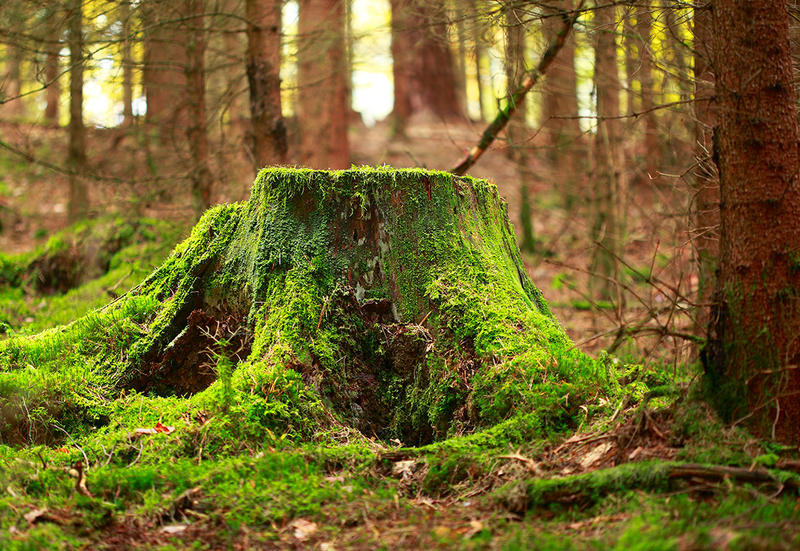I’ve never been in prison. The closest I’ve come was a couple hours on a
school bus full of protesters with a zip-tie around my wrists, waiting to be
processed by the National Park Police. But
that’s a story for another day. My point is that I don’t really know what it is
like to be confined against my will, forced to do nothing but wait and see when
and if I will ever go free.
John the Baptist, in our gospel
story, is in prison, and he doesn’t know how long he must wait, or what he’s
waiting for, and it’s not likely to be pleasant when it comes. But John is not concerned about this. Because God has given it to him to see that
the kingdom of heaven has come near, that one is coming after him who will baptize
with the Holy Spirit and with fire. This
is the waiting that matters to John—the long waiting of his people for the
redeemer promised to them through the prophets.
And this is the wait that John
believes will soon come to an end—but the question is: how soon?
The conditions of John’s
imprisonment mustn’t be completely harsh, because he can have visits from his
disciples. That is how he catches wind
of the activities of Jesus of Nazareth, who once came to him to be baptized in
the Jordan. At that time, according to
Matthew’s telling, John recognized Jesus’ spiritual stature, and protested that
Jesus should baptize him, and not the other way around. Jesus insisted, though, that John do it, and
maybe that made John doubt whether Jesus was the one foretold. In any case, when we next meet John he is in his
prison cell and sending his disciples to ask Jesus a question.
Now, the author of Matthew sets the
stage for this story by using the word “Christ,” “Messiah.” It’s the first time
this word appears in the Gospel since wise men came from the East, and Herod
asked his priests and scribes where the scriptures said the Christ would be
born. “When John heard in prison what
the Messiah was doing,” Matthew writes, “he sent word by his disciples and said
to him, ‘Are you the one who is to come, or are we to wait for another?’” So for us as readers of the Gospel, the
answer to John’s question is known before he asks it. There is no doubt or suspense about it at
all.
For us the question that really
counts is the one that Jesus chooses to answer.
It is not the question of “when?” because we know that the answer is
“now.” It is not the question of “who?”—the
answer is, “Jesus.” But the question
that Jesus answers is “how?”: “how do we know that he is the Messiah?” or “how does
the Christ act when he comes?” And this
morning I want to submit to you that the “how” questions are the ones that
really matter to us, too.
Christians through the centuries have
enjoyed speculating about what theologians call “eschatology,” that is to say,
the “when” question. I guess maybe we’ve
found it reassuring to think that there’s a definite date upon which history
will end, and that we might even be able to foretell that date, even if in only
a general, ballpark-guess kind of way.
And we’ve had even more fun speculating about what theologians call
“Christology”—the “who” questions. Maybe
it give us a sense of confidence to be able to define in precise and technical
terms who Jesus is and what exactly is his unique relationship to God and his
role in the plan for the creation and redemption of the universe. But if we’re going to be completely honest
with ourselves, I think we have to admit that our answers to these questions
are always going to be no more than speculation, because they are questions to which,
by definition, only God can give the answer.
And it’s the “how” questions that
really meet us, as they say, where we live.
Jesus’ answer to John’s question suggests that we can answer the “how”
questions, right here on the human level.
We don’t need to wait for someone else to come, in the future end of
time. We don’t need to confess that
Jesus is Lord and Savior, or the only-begotten Son of God, or load him up with all
kinds of other lofty Christological titles.
What really matters to Jesus, is that we put our faith in what he did
when he was here on earth, in his human life.
John the Baptist’s disciples come to ask “who?” and “when?” and Jesus
answers, “tell your master what you hear and see: the blind receive their
sight, the lame walk, the lepers are cleansed, the deaf hear, the dead are
raised, and the poor have good news brought to them.”
This answer of Jesus is a kind of
pastiche of quotes from the prophets, from their inspired visions of what it
will be like when Israel’s waiting is over, and the anointed one finally
comes. But it’s a very selective set of
quotes. He doesn’t say anything about
slaying the wicked, or destroying the enemies of God; he doesn’t talk about
restoring the dynasty of David, or rebuilding the might of the nation, or reforming
the worship of the temple, though he could have found passages in prophecy to support
making these the planks of his messianic platform. But again, he’s not answering John the
Baptist’s question with promises of what he will
do, if everyone accepts his claim to be the Christ, and joins his insurrection,
and supports him in a bid to take power.
He’s talking about what anyone can see and hear—the work that he is
already doing, with the power he already has from God.
The work that Jesus is doing is healing
human beings who have been deprived of the full flourishing of their lives by
illness or disability, by poverty or premature death. He’s not solving all their problems, or
giving them keys to a house on Easy Street, but he is restoring their dignity
and their hope. He is showing them what they
can do and be, when they believe that they, too, are sons and daughters of God. He is renewing their faith that there is
meaning and purpose to human existence, and that they have been called to play
their part in God’s mission in the world.
To be sure there are those who are disappointed
in Jesus because they hope for bold slogans and grandiose pronouncements and instantaneous
change. There are those who are resentful
because, being accustomed to power and privilege, they assumed the messiah
would reserve a first-class place on his bandwagon for them. But then there are those who see that in Jesus
God has come to us to heal our bodies and souls, not because we have any
special rights, but because of our special needs. We are
broken, seemingly beyond repair, and still God cares for us, and chooses us to
be ambassadors of heaven. When we welcome
this Messiah who shows who he is by restoring wounded human beings, we are already
blessed, no matter who we are, or who we have been.
You and I may not have the
supernatural gift of healing that Jesus had.
But that doesn’t mean that the power of God can’t work through us to
change our lives, or even change the world.
It can, if we accept that it is in the lives of ordinary men and women
like us, that God has chosen to manifest redeeming power. If we accept that this transformation is not something
that will begin any day now, when we’re good and ready, when we’ve kicked that
bad habit and started doing yoga, and the holiday shopping is done, or the kids
are in college, it has in fact already begun.
For Christians the supreme model of
this kind of acceptance has always been the mother Mary, who magnified the
greatness and power of God in her own lowly soul. Though she cannot possibly be ready, she consents
to conceive the promised child. And then it’s up to her—to her ordinary human powers
of gestation and giving birth, of maternal care and love, of patient instruction
in the way of life commanded in the Torah.
She has accepted her role in the coming of the Messiah, and that in
itself has scattered the proud and thrown down the mighty. That in itself has lifted up the lowly and
filled the hungry with good things, as surely as if the job were already done.



